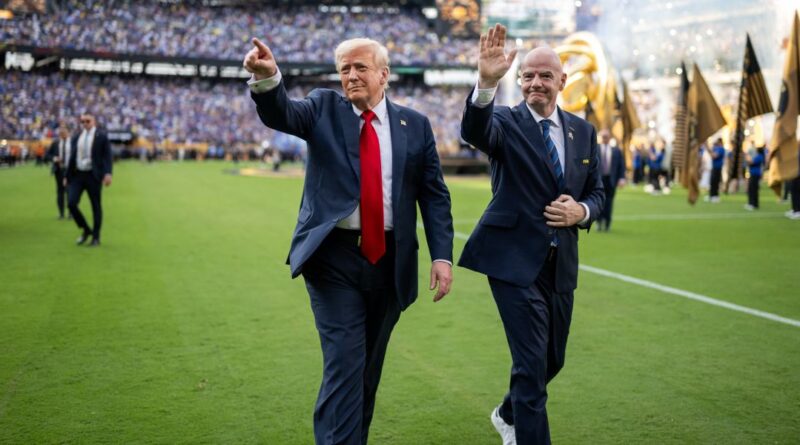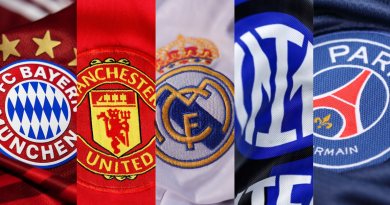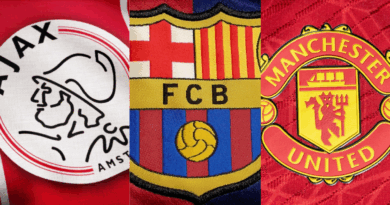U.S. politics discovers football fever
A shifting landscape
Football has spent much of its American life outside the political mainstream, overshadowed by the NFL and domestic sports that traditionally dominate campaign moments. But with youth participation rising, Major League Soccer expanding, and the 2026 World Cup approaching, the sport has become a cultural force with appeal that reaches well beyond the country’s borders.
This broader growth has drawn political operatives into territory that once felt too niche to matter. Both Republicans and Democrats now appear willing to attach their messaging to famous football figures, reflecting a belief that global stars can amplify domestic narratives, particularly among younger and more internationally engaged voters.
Some analysts say this shift also reflects a generational change. For many voters under 35, Messi and Ronaldo are more recognizable than most American politicians, giving campaigns an incentive to borrow visibility from the sport’s universal reach.
FIFA’s expanding ambitions
FIFA has positioned the U.S. as a central pillar of its long term strategy. The coming forty eight team World Cup and expanded Club World Cup reflect an organisational bet that the American market will anchor global football growth for the next decade. Earlier reporting has highlighted FIFA president Gianni Infantino’s close working relationship with President Donald Trump, which has helped streamline coordination on preparation efforts.
Read also: Konaté breaks silence amid Liverpool’s defensive crisis
FIFA’s decision to open an office in Trump Tower signaled both the scale of its investment and the importance of political cooperation as the sport enters one of the most ambitious tournament cycles in its history.
Political messaging meets football
The political implications of football’s rise became clearer when Cristiano Ronaldo visited Washington. A video of Trump greeting Ronaldo and Georgina Rodríguez drew millions of likes on the White House Instagram account, far exceeding its usual engagement. For campaign strategists, it demonstrated how easily a football celebrity can boost political visibility among audiences that normally remain outside the U.S. political sphere.
The meeting took place during a tribute to Saudi crown prince Mohammed bin Salman, one of global football’s most influential financial backers. Ronaldo, now with Al Nassr, attended alongside Elon Musk, Apple chief executive Tim Cook, and Infantino, who had arrived after presenting Achraf Hakimi with the African Player of the Year award.
Trump remarked to attendees, You know what, my son is a huge fan of Cristiano Ronaldo. Now that he is here, I think he respects his father a bit more after I introduced them. Thank you for being here, it is an honor.
Read also: Lamine Yamal between expectations, criticism and heavy comparisons
Democrats soon countered by amplifying Messi content across their channels, part of an effort to show their own proximity to football’s global icons.
Immigration politics enters the frame
The sport’s political role expanded further when Vice President JD Vance introduced immigration messaging at a meeting of the White House Task Force on the FIFA World Cup 2026. At the gathering, Vance joked that foreign visitors who overstay their travel permissions during the World Cup would need to speak with Homeland Security Secretary Kristi Noem, who has become the public face of the administration’s intensified immigration enforcement.
I know we will have visitors from close to 100 countries, we want them to come, we want them to celebrate, we want them to watch the game, Vance said. But when the time is up, they will have to go home, otherwise they will have to talk to Secretary Noem.
Noem noted that an estimated two million foreign visitors are expected to travel to the U.S. for the tournament. She said document processing would go smoothly, while the Department of Homeland Security highlighted her aggressive enforcement stance in its summary of her first 100 days.
Read also: Barça midfielder sidelined with muscle strain
The comments gained attention because they blended tournament planning with broader political themes, including migration enforcement, international relations, and security concerns, all in the context of a global sporting event.
Economic and diplomatic stakes
Trump emphasized the tournament’s projected economic impact, saying it would generate tens of billions of dollars in activity and support thousands of jobs. The administration has presented the World Cup as an opportunity to showcase American cities, from Los Angeles and New York to Miami, Dallas and Atlanta, all of which are finalizing infrastructure and security preparations.
Infantino echoed this sentiment, saying America will welcome the world. Everyone who wants to come here to enjoy, to have fun, to celebrate the game, will be able to do that. Trump added that the event will be the biggest, safest and most extraordinary soccer tournament in history.
Political analysts see these public statements as attempts to claim ownership of the tournament’s success while also framing it within broader national policies on trade, immigration, and international partnerships.
Read also: Alonso moves to calm Real Madrid tensions after turbulent fortnight
A political pivot
Football’s rising visibility in U.S. politics suggests that lawmakers and strategists now view the sport not only as a cultural phenomenon but as an instrument for shaping public messaging. The sport’s global scale gives politicians access to audiences far beyond traditional campaign structures, while also offering a platform to discuss issues that extend into foreign policy and national identity.
At the same time, sports commentators note that this political embrace may accelerate football’s integration into American life as excitement builds for the 2026 World Cup. For a sport that long sat on the margins of the country’s sporting identity, its new centrality hints at a cultural turning point.
Whether driven by electoral strategy or genuine enthusiasm, Washington’s deepening relationship with football is reshaping how both politics and sport are discussed in the years leading up to the world’s most watched tournament.
Read also: Pep Guardiola drops fresh verdict on Premier League title race




